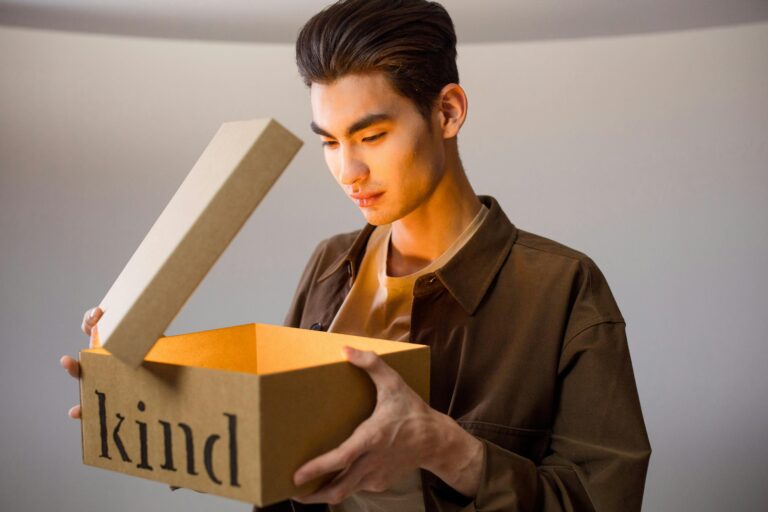Breaking the Silence: Mental Health in Asian American Homes
Mental health is a universal human experience, yet the way we understand and discuss it varies widely across cultural backgrounds. In many Asian American families, mental health is often regarded as a private matter and, at times, even a taboo subject. Cultural values such as emotional strength, family privacy, and the importance of saving face can make discussing emotional struggles feel risky or shameful.
As someone who moved from Vietnam to the United States, first as an international student and later as a psychiatric nurse practitioner, I have personally experienced the cultural tension between staying strong and asking for help. At YOU Psychiatry Clinic, we recognize the unique challenges that Asian American families face when it comes to mental wellness. One of my key motivations for opening this clinic is to bridge the gap between generations, combining cross-cultural understanding with clinical expertise to help patients from diverse ethnic and cultural backgrounds access the support they need.
Although this blog post primarily focuses on the Asian American experience, the emotional challenges and cultural barriers described here are also familiar to many other communities. I hope readers from all backgrounds find something that resonates and encourages them to reflect or start a conversation.
Talking About Mental Health in Asian American Homes
Many Asian cultures place a high value on endurance, resilience, and self-reliance. While these qualities help individuals persevere through hardship, they can also make it difficult to admit when someone is struggling. In families where saving face is crucial, conversations about anxiety, depression, bipolar disorder, substance use, or more severe conditions like schizophrenia or even the idea of therapy can feel like revealing shameful secrets.
In some households, mental health struggles are not viewed as individual concerns but as reflections of the family’s reputation and a failure to raise their children properly. This belief often leads to silence, denial, and internalized shame.
Common Myths That Prevent People from Seeking Help
Cultural values often give rise to persistent myths that create barriers to mental health treatment:
– “Therapy is for crazy people.” This belief discourages people from seeking help early when intervention could be most effective.
– “We should just pray or tough it out.” Spirituality and inner strength are essential, but they can complement, not replace, professional care.
– “Mental illness is a personal failure or a family disgrace.” This idea isolates those in need and prevents open dialogue.
– “Medication will change who you are.” Fear of losing one’s identity may keep people from trying treatments that could help them feel more like themselves.
– “Medication is harmful.” Some prefer unproven or harmful remedies, such as herbal supplements or spiritual interventions, over evidence-based care.
– “It is just a phase.” Mental health concerns are often dismissed as temporary, further delaying proper support.
Debunking these myths is a crucial step toward healing, not only for individuals but for families and communities.
Generational Gaps: Different Views, Shared Goals
Younger Asian Americans tend to be more open to discussing mental health and seeking support. In contrast, older generations, particularly immigrants or asylum seekers, may see emotional struggles as personal weaknesses or traumas that should be left in the past. Many elders are political refugees or trauma survivors who face life-threatening adversity and suppress their emotions to survive. As a result, they may struggle to understand why their children, raised in relative safety and comfort, often feel overwhelmed.
These intergenerational differences can create tension, confusion, or emotional distance. The encouraging news is that both generations typically seek the same outcomes: family harmony, emotional well-being, and lasting happiness. The real challenge lies in learning how to communicate effectively.
How to Start the Conversation With Parents or Elders
Approaching mental health conversations with elders requires sensitivity and respect. Here are some compassionate ways to initiate the dialogue:
- “I have been feeling overwhelmed lately and wanted to share how it is affecting me. It is important to me that we support each other.”
- “I read that many people struggle with stress and emotions, and there are ways to get help that do not mean something is wrong with you.”
- “Sometimes talking to someone outside the family, like a counselor, can help you feel stronger and more at peace. I would love to support you in that.”
- “Our family’s well-being means a lot to me, and I want us all to feel happier and healthier.”
For me, action often speaks louder than words. I once helped a cousin who failed his board exams twice while mourning the loss of his father to COVID-19, a tragedy he blamed on himself. He was the anxious perfectionist, the golden child under immense pressure from many family members. Communication with his family had broken down, as he interpreted their concerns as criticism. When they asked me to intervene, I encouraged him to seek psychiatric care. He began therapy and medication, adopted healthier habits, and eventually passed the exam. When my aunt asked what made the difference, I explained it was professional mental health care. That one success story changed many minds in our family. Relatives who once doubted my choice to specialize in psychiatry now recognize its importance alongside physical healthcare.
Why Cultural Competence in Mental Health Care Matters
Culturally competent providers understand the traditions, languages, and values that shape their clients’ experiences and perspectives. They are better equipped to navigate intergenerational tension, acculturative stress, and the stigma surrounding mental illness.
At YOU Psychiatry Clinic, we strive to provide care that respects both cultural heritage and emotional well-being. For some clients, this means working with a provider who shares their background. For others, it means speaking in their native language or being treated with empathy and respect.
Even when a provider does not share the same background or speak the same language, a commitment to empathy, cultural humility, patience, and ongoing learning can foster deep trust.
The Unique Mental Health Needs of International Students and Fulbright Scholars
I also want to highlight the unique mental health needs of Asian international students and Fulbright scholars. These individuals face significant pressures: academic performance, cultural isolation, language barriers, and the heavy weight of expectations from their families or sponsors. For many, studying abroad is not just a personal goal, but the realization of dreams passed down through generations.
Asian culture places a high value on academic excellence. This creates intense pressure to succeed and can lead students to neglect their mental health. Even when they recognize they need support, they may not know where to seek help or may avoid doing so due to stigma, language barriers, or fear of jeopardizing their visa status.
Additionally, many of these students come from highly structured home environments with limited social exposure because they have spent most of their lives focused on academics. When they enter more open and less structured cultures, they may face emotional challenges for which they are unprepared. This can lead to disorientation, emotional distress, or psychiatric symptoms when they lack direction or experience culture shock and language difficulties.
As a former international student, I understand how overwhelming it can be to stay strong while adjusting to an entirely new environment. The sooner students access mental health resources, the better they can adapt, thrive, and succeed.
The Hidden Impact of Silence
Avoiding conversations about mental health can have lasting consequences. Untreated psychiatric conditions can lead to substance abuse, academic failure, job loss, or even harm to oneself and others. Among Asian American young adults, suicide is a leading cause of death, yet they are among the least likely to seek help. Silence does not protect us. It isolates us.
Building a Culture of Openness
In recent years, Asian American voices have become more prominent in mental health advocacy. Social media, community forums, and public figures are helping normalize these critical conversations. You can help by:
- Starting conversations with your family. Even small talks matter.
- Sharing mental health resources in native languages.
- Creating or joining safe spaces like support groups or online communities.
- Encouraging community leaders to champion mental wellness.
- Raising awareness and speaking out against stigma.
- Normalizing psychiatric care, therapy, and medication use.
Mental Health in the Workplace: A Hidden Struggle for Asian Americans
The workplace is another space where Asian Americans often struggle silently. High pressure environments in fields such as technology, medicine, finance, and academia can exacerbate mental health challenges. Asian American employees may internalize stress and avoid seeking help due to fears of appearing weak or ungrateful.
The model minority myth, which portrays Asian Americans as high-achieving, compliant, and emotionally resilient, adds pressure to maintain unrealistic standards. This leads to burnout, disengagement, and sometimes severe psychological symptoms.
Employers can promote healthier work environments by:
- Offering culturally competent Employee Assistance Programs (EAPs).
- Promoting mental health education that reflects diverse backgrounds and perspectives.
- Creating affinity groups or support networks.
- Establishing clear, inclusive policies on wellness and bias prevention.
Asian American professionals should be encouraged to set boundaries, take breaks, and access support without shame. When mental wellness is prioritized in the workplace, both individuals and organizations benefit. Compassionate and inclusive environments are more productive and resilient.
The Role of Social Media: A Double-Edged Sword for Asian and Asian American Mental Health
Social media plays a significant role in how Asian and Asian American individuals understand and talk about mental health. For younger generations, these platforms provide rare validation and visibility. Content creators, therapists, and everyday users share stories about anxiety, trauma, perfectionism, and bicultural identity, helping others feel less alone.
Asian mental health advocates use social media to dispel myths, promote therapy, and normalize vulnerability. Their efforts have helped shift cultural attitudes, particularly among younger people, toward greater openness and acceptance.
However, these platforms can also lead to harmful comparisons, unrealistic standards, and identity confusion. The pressure to meet both Western and Asian expectations can intensify self-doubt and internalized shame.
International students and immigrants may feel simultaneously connected and alienated by what they see online. Inaccurate or oversimplified advice from nonprofessionals can further complicate their mental health journey.
To use social media more intentionally, Asian individuals can:
- Follow culturally competent mental health advocates and organizations.
- Join digital communities centered on healing and authenticity.
- Take breaks when needed to maintain emotional balance.
- Validate their experiences offline through friends, therapy, and self-care.
When approached mindfully, social media can become a powerful tool for raising awareness, promoting advocacy, and fostering healing. It can help break the generational silence around mental health and foster supportive communities.
Final Reflections
Mental health is not a weakness; it is an essential part of life that deserves care and attention. Breaking the silence in Asian American homes and communities requires patience, empathy, and the courage to speak out.
At YOU Psychiatry Clinic, we are committed to walking this journey with you with compassion, cultural respect, and clinical excellence. If you or someone you love needs support, reaching out is not a sign of failure but a step toward healing. We are committed to providing culturally sensitive care. We have two providers who speak Vietnamese fluently: myself and Dr. Nguyen.
Let us continue the conversation together.







